One of the most powerful weapons in a restaurant operator’s arsenal is also one of the most unappreciated: music.
A good background playlist is much more than it seems. Sound has the remarkable power to make food taste sweeter or more bitter, crunchier or creamier. It even has the power to influence customer behavior, affecting what guests order and how long they stay.
As founder and CEO of Altaura, Doug Marshall works closely with restaurants and musicologists to tap into the fascinating science of sound, helping brands develop highly curated background playlists that transform the dining experience for customers and employees alike.
In a recent talk at RestaurantSpaces, Marshall explained why operators should bring background music to the foreground.
How Music Drives Revenue
While music has powerful effects on many aspects of a restaurant’s operations, Marshall focused on three in particular: revenue, dwell time and guest turnover, and staff and customer wellness.
A wealth of research points to the music’s power to drive revenue — or rather, the right music’s power to drive revenue.
A study conducted at 16 McDonald’s locations in Sweden found that generic Top 100 playlists decreased sales by 4.3 percent. Playlists that included songs specifically curated for the brand, however, increased sales by 4.8 percent. “That’s a 9.1% swing,” Marshall pointed out.
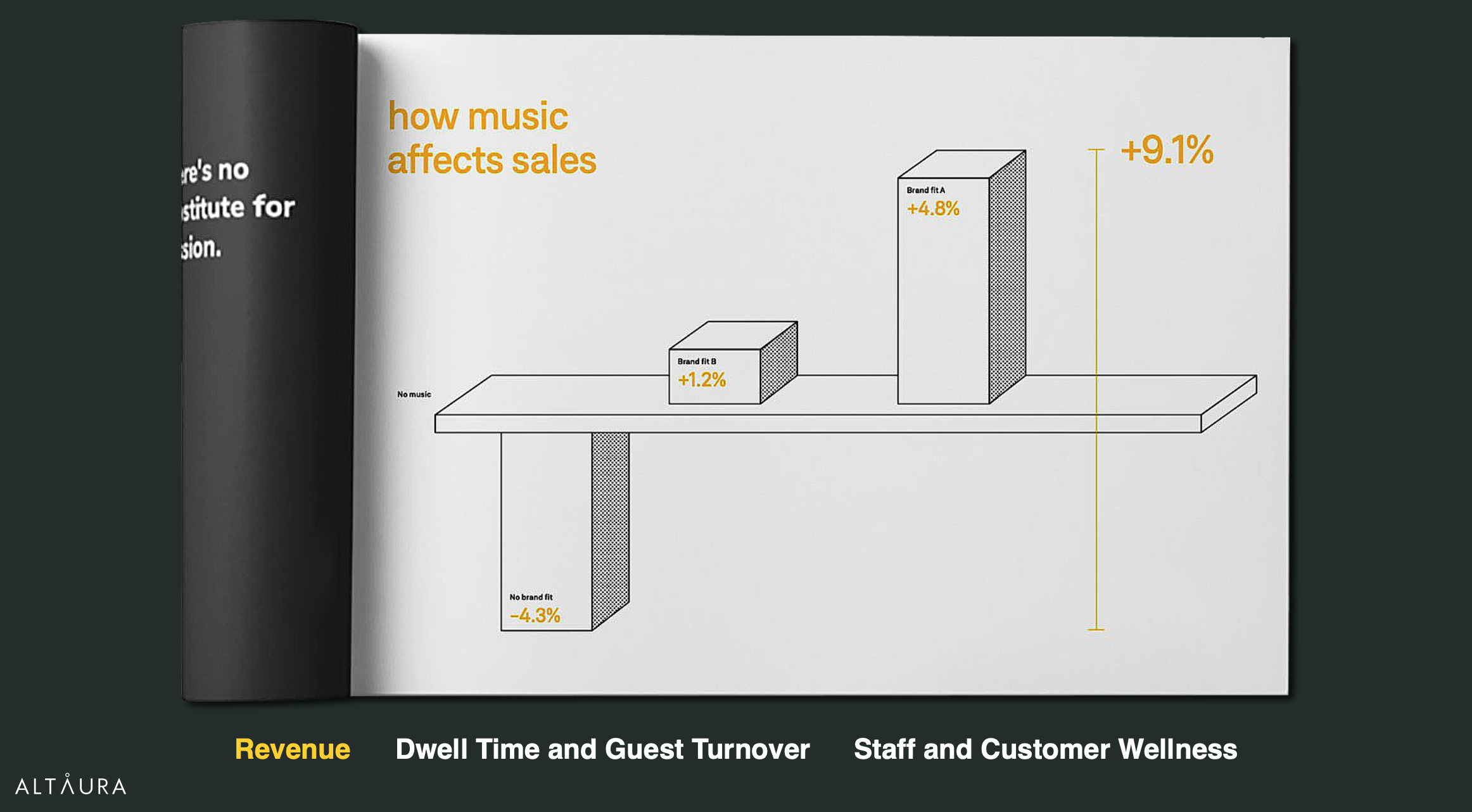
Altaura’s own research corroborates these findings. In a two-month study conducted at one restaurant location, Marshall’s team programmed a generic Top 100 playlist for the first month and an “on-brand” playlist for the second.
The results? “The number of customers who bought dessert increased by 12 percent,” he said. “This equates to $800/month of income just on desserts, and we didn't even measure alcohol. That's only in one location and that's only in one sitting.”
The Right Tempo at the Right Time
It’s not just the “on brand”-ness of the music that influences revenue. Volume and lyrics are also correlated with the amount of time guests spend in a space. When they notice the music playing, they notice time passing, with lesser-known music leading to longer dwell time.
“It's kind of like being in Vegas with no clocks on the wall,” Marshall said. “Unfamiliar music subconsciously tricks you into not realizing that time is passing.”
At the same time, volume influences what guests order. By increasing excitement levels, louder music is correlated with unhealthier food choices. Quieter music, by contrast, is correlated with healthier ones. Tempo has a similar effect.
“You can make people eat faster, buy more items and speed up wait times simply with the right tempo at the right time,” Marshall said, describing Altaura’s work with a brand trying to reduce its lengthy queues. “Once we implemented faster tempos at higher volumes, at specific times of day, average wait time decreased, average ticket spend increased, and the staff felt happier and more motivated.”
That last part is especially important. The right music keeps employees happy, focused, and relaxed, which in turn keeps restaurants staffed. Altaura demonstrated this effect in its recent work with Freebirds, boosting the chain’s retention simply by changing its music.
"We now get regular feedback that the music helps motivate the team and makes them feel more part of the Freebirds’ mission," Marshall said. "Also, the staff don't try to DJ anymore.”
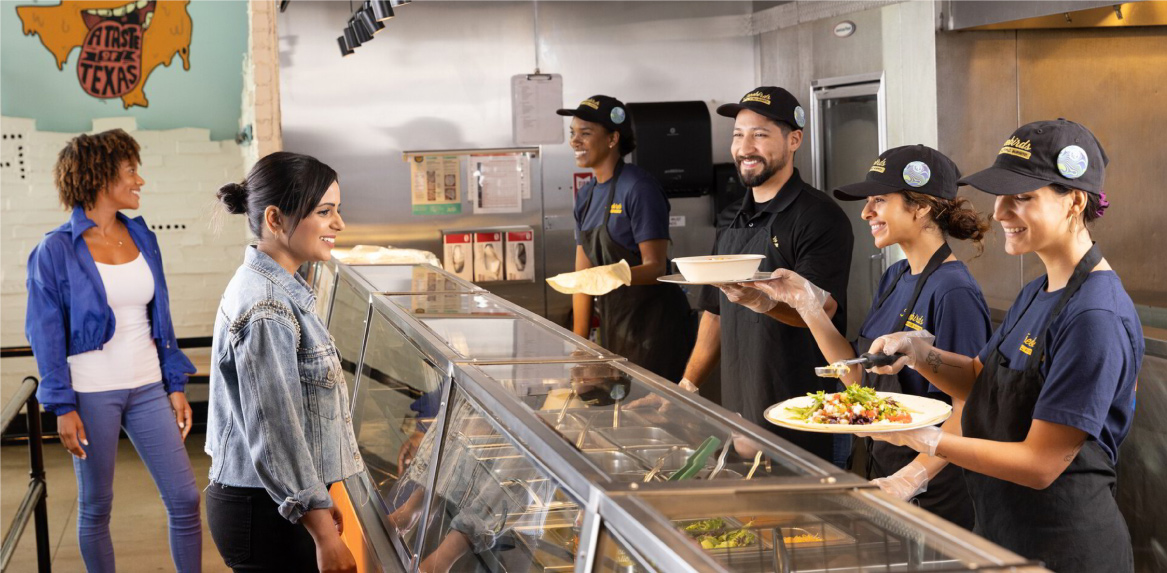 Freebirds World Burrito experienced improvements in staff retention with better music
Freebirds World Burrito experienced improvements in staff retention with better music
A Human Touch
Despite recent advances in algorithmic music curation technology, Marshall claimed the tech isn’t quite up to the challenge restaurants face. A human touch is still essential, especially when it comes to categorization: music AI may be able to delineate upbeat music from downbeat music, but it still struggles to sort through the infinite variation within upbeat music.
Marshall described a juice bar he recently worked with: when it asked its curation algorithm for happy tracks, it kept playing “Baby Shark” — a less than ideal result.
“The AI is not wrong, but it doesn't fully understand the emotional connection and context of that song," he said. "You need humans to know and understand the emotions within music to be able to effectively curate a sound that's gonna influence people.”
That said, the technology is still advancing. Marshall predicted that soon enough, Internet of Things systems will use sensors to monitor customer behavior and curate music accordingly. Altaura is currently testing a system that automates volume based on how many guests are in a restaurant, as well as a system that detects people’s moods from their vocal cadences. “That helps us determine how happy or sad they are, which can provide us with more data on how to effectively curate for that space,” Marshall said.
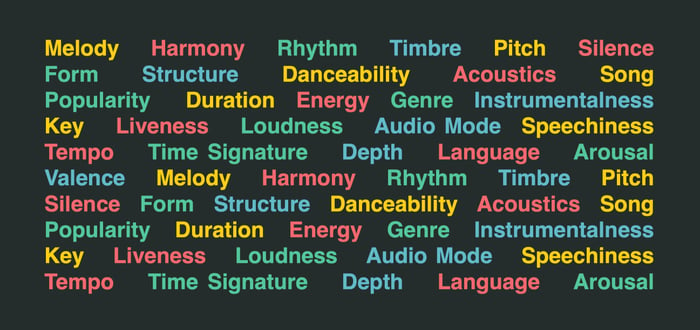
Competing on Experience
MRC, the music industry data and analytics provider, found in a recent study that 81 percent of people notice the background music playing in restaurants, while 96.4 percent notice the background music playing in bars. This alone speaks to the under-appreciated role music plays in the restaurant experience, one that Marshall encouraged operators not to overlook.
“Right now, it's really tough to be the cheapest on the market and it's really tough to be the best product, but you can compete on experience,” he concluded. “Let's start paying attention to the details and the experiences, because it's the easiest and quickest way to transform your business.”

Posted by
Chain Restaurants Reimagined.
The Retreat to Reimagine Restaurant Development, Design + Technology.
April 12-14, 2026 | Miami, FL



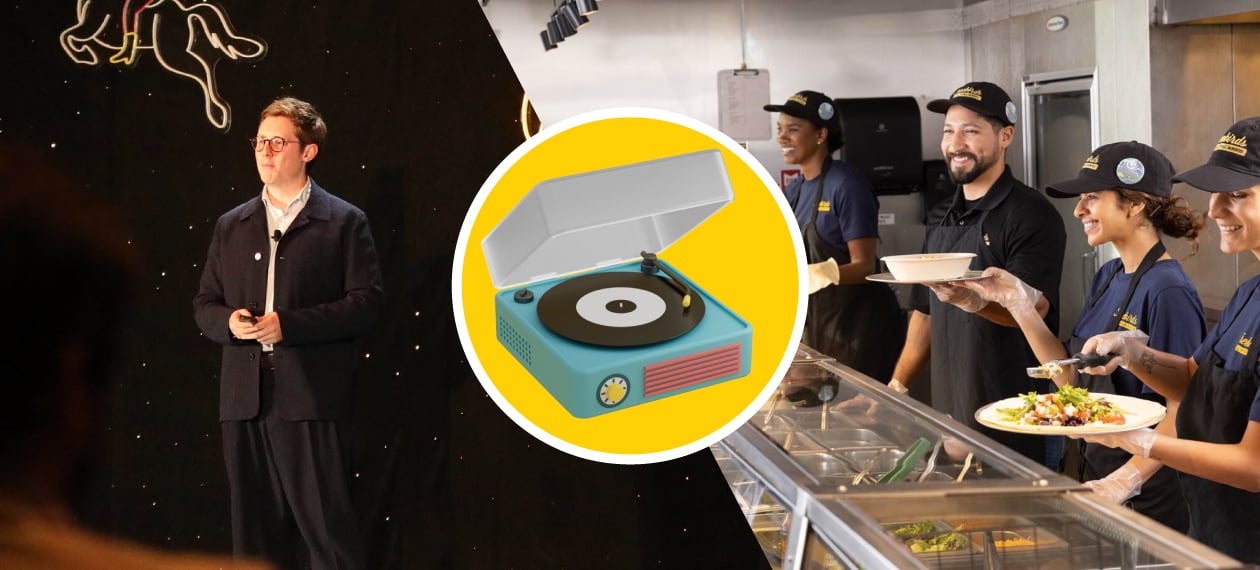

-Feb-12-2026-04-59-31-5890-PM.png)

-3.png)
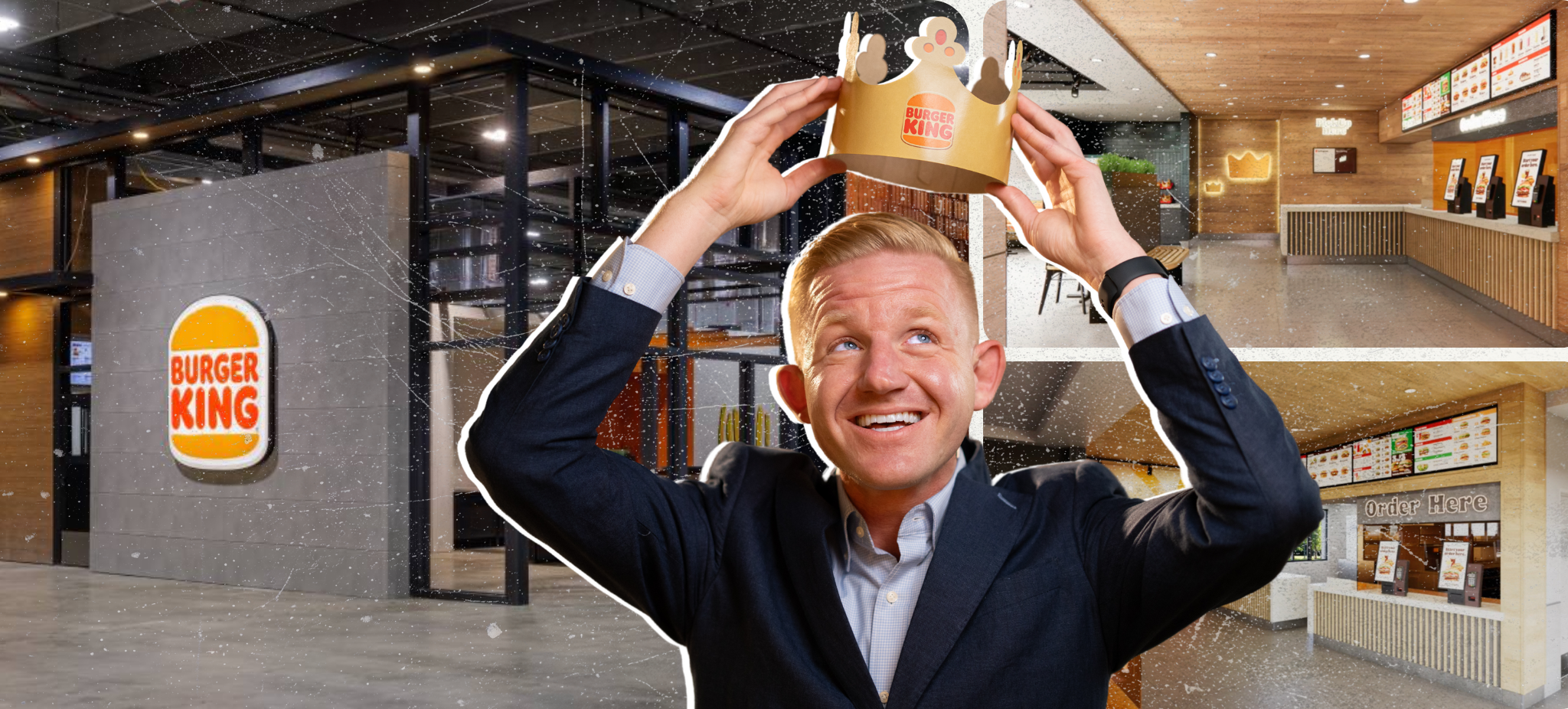
-3.png)

Comments